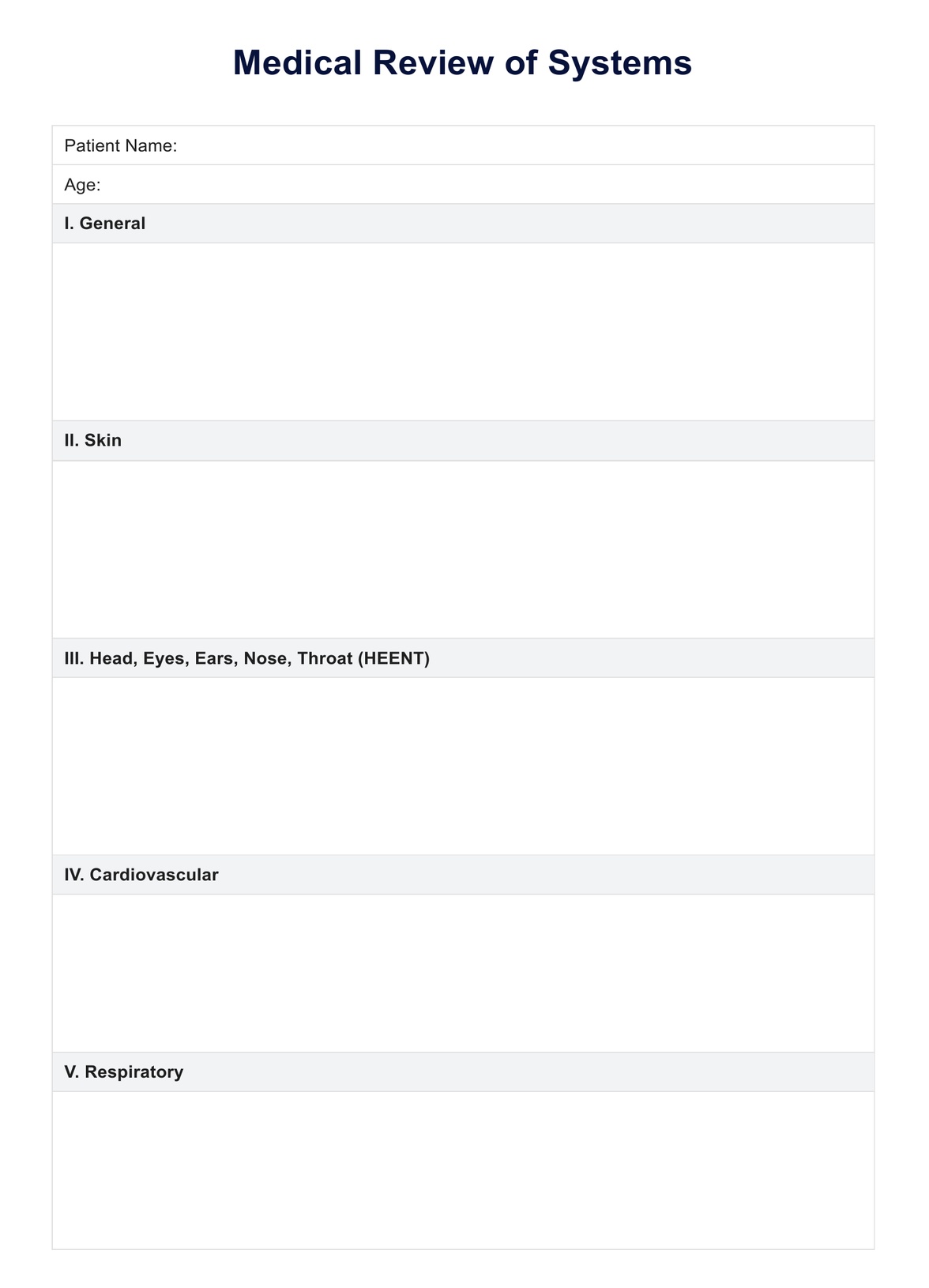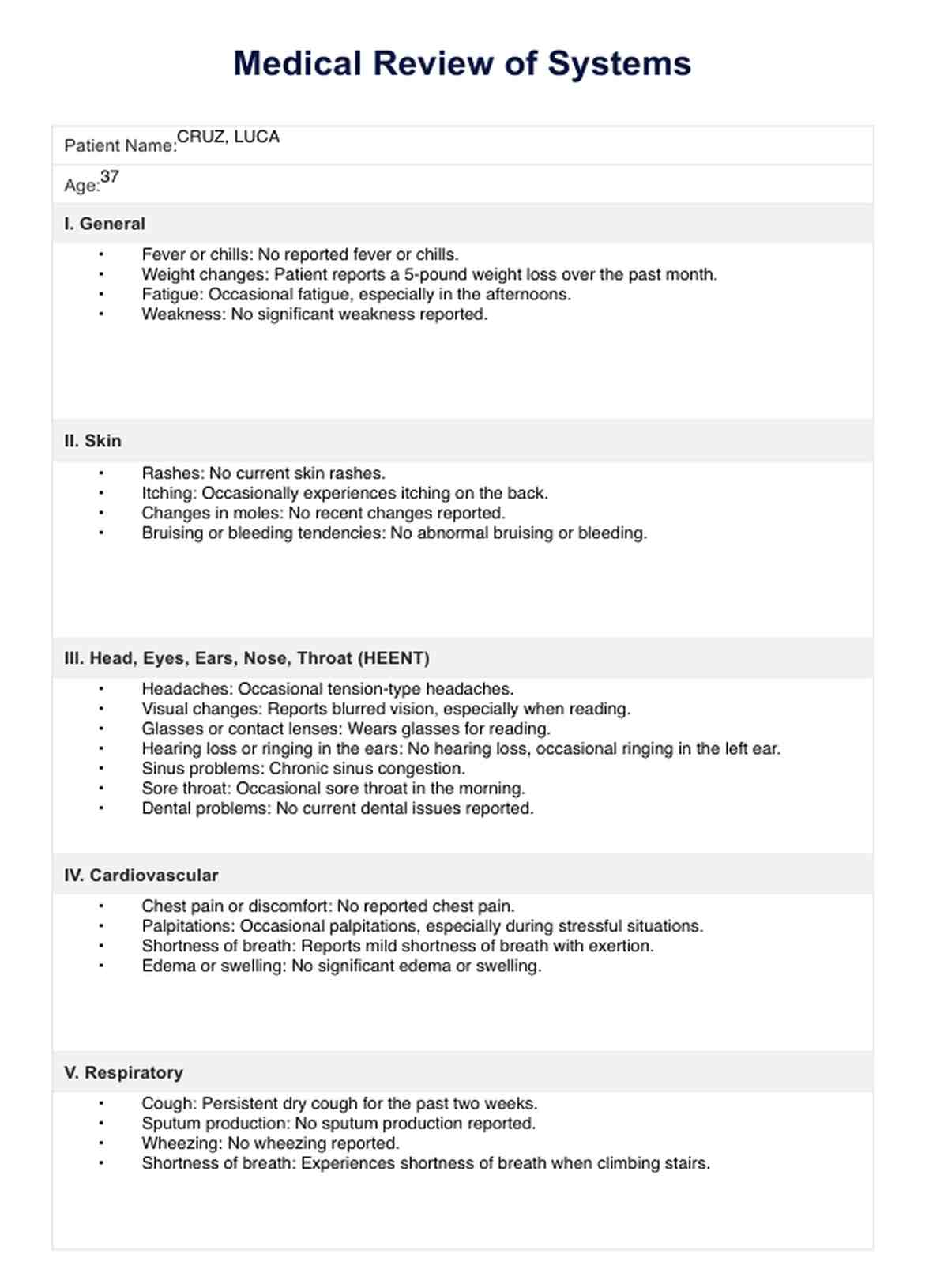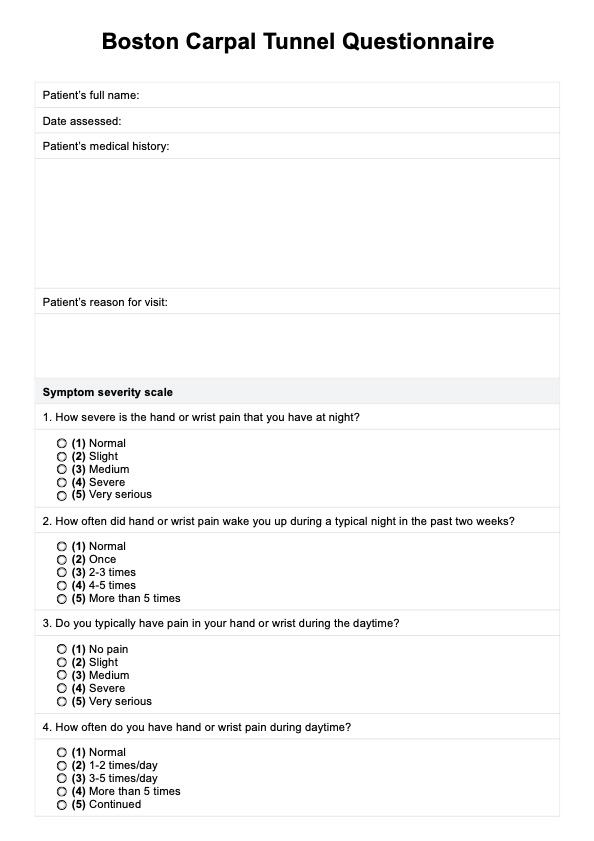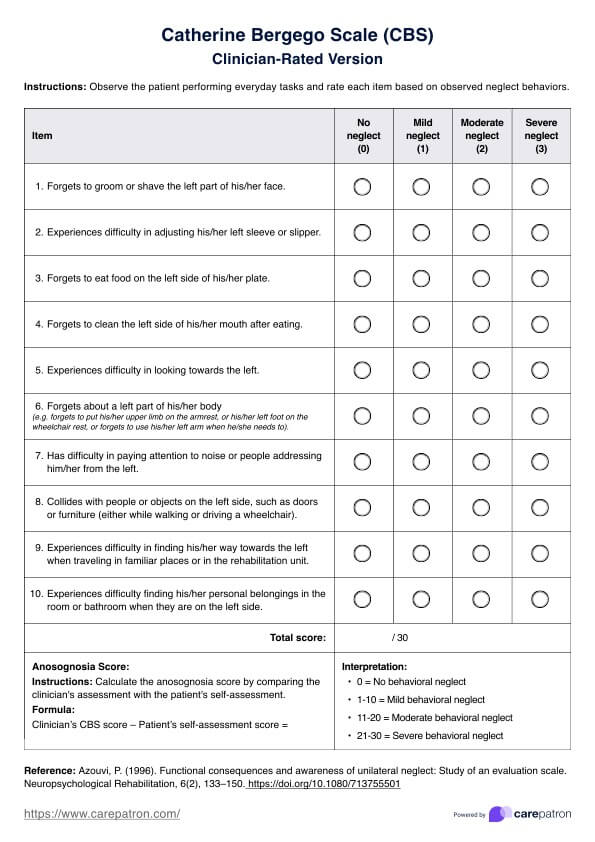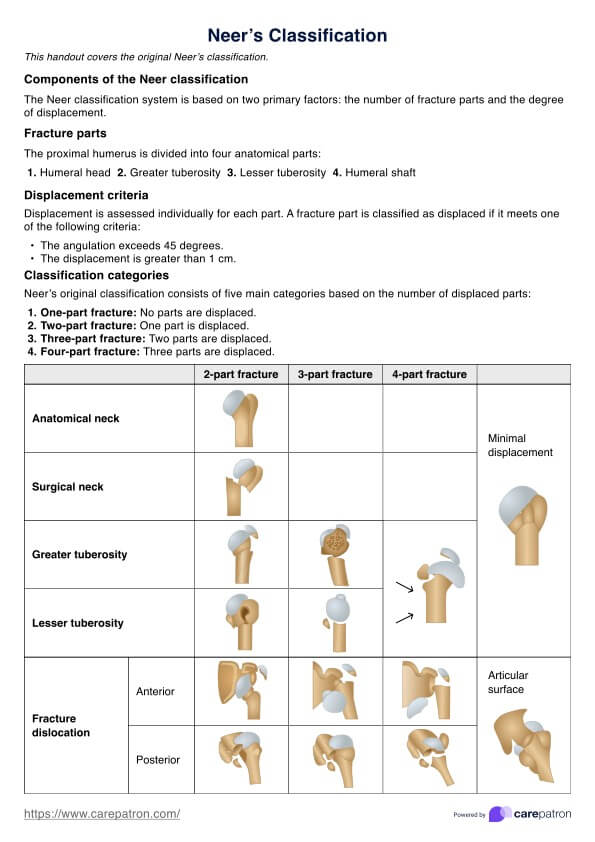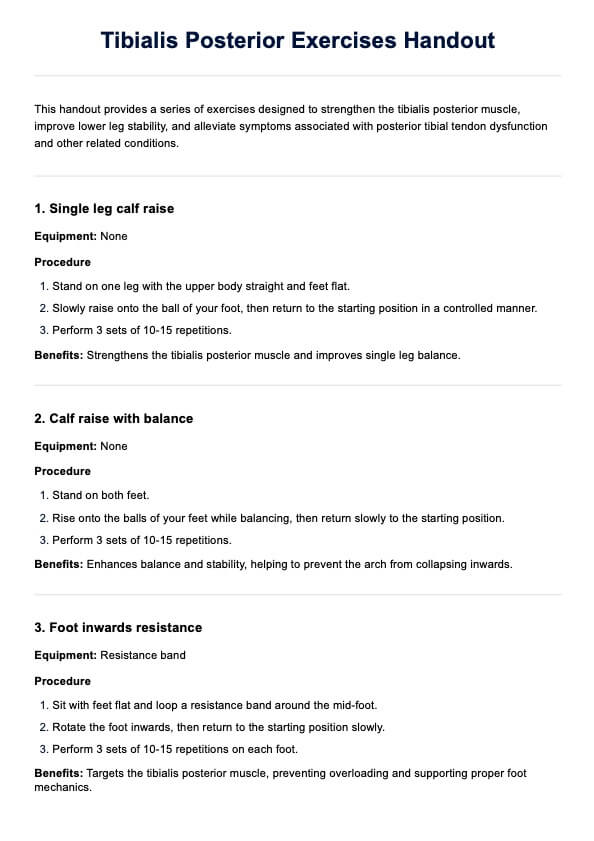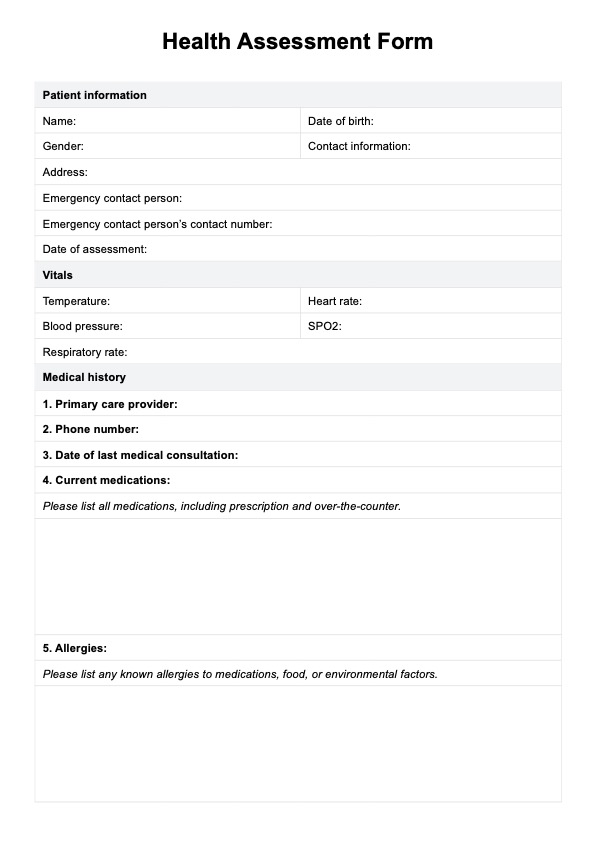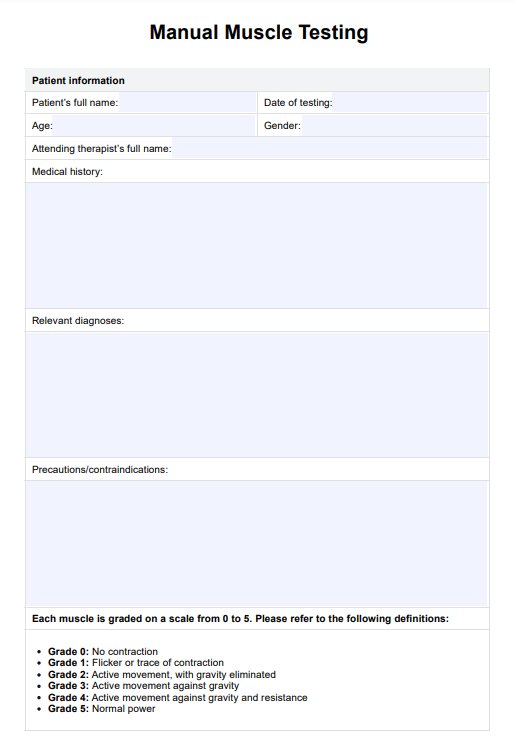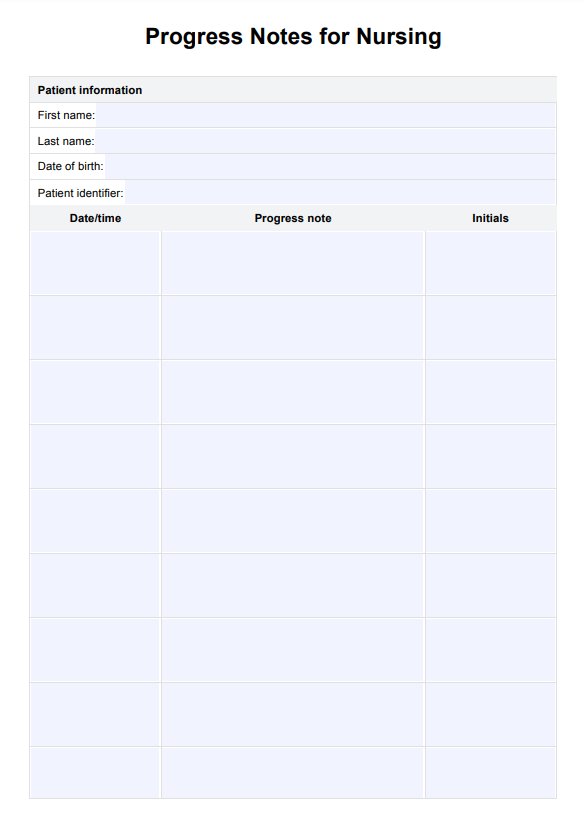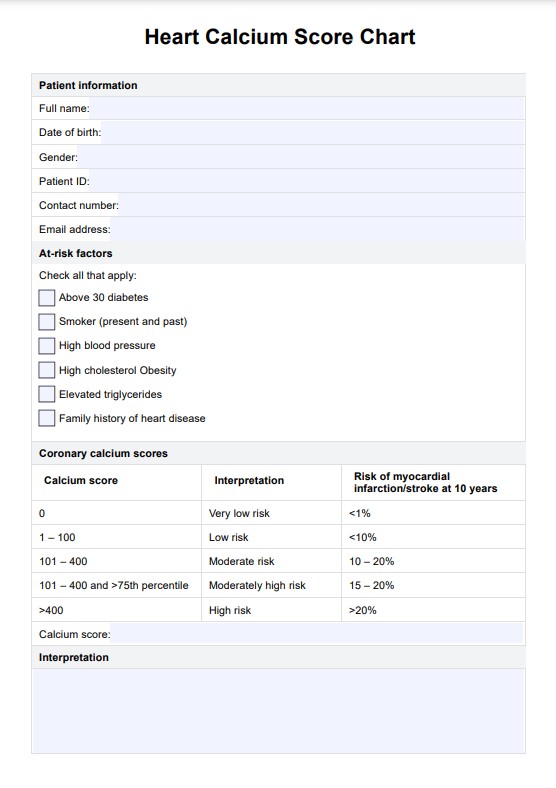Medical Review Of Systems
Looking for a medical review of systems template and example? Download Carepatron’s free guide for a comprehensive medical review template and samples!


What is a Medical Review Of Systems Template?
A Medical Review of Systems (ROS) Template is a structured framework to systematically evaluate various organ systems in a patient's body. This crucial tool assists healthcare professionals in gathering comprehensive information about a patient's health by asking targeted questions.
The template typically includes a range of categories such as cardiovascular, respiratory, gastrointestinal, and more, enabling a thorough examination of the patient's symptoms and history.
This template not only aids in efficient data collection but also ensures that no critical aspect of a patient's health is overlooked during an examination.
Additionally, it guides healthcare practitioners, helping them identify potential issues, establish a baseline for ongoing care, and tailor treatment plans accordingly.
Whether used in routine check-ups, pre-operative assessments, or specialized medical examinations, a well-structured ROS template is indispensable in enhancing the accuracy and depth of medical evaluations.
Medical Review Of Systems Template
Medical Review Of Systems Example
How does it work?
A Medical Review of Systems (ROS) Template is a systematic guide for healthcare professionals to assess a patient's overall health. Utilizing this resource involves several key steps:
Selecting the template
Begin by choosing a printable medical review of systems template that aligns with your specific medical practice or the nature of the examination. Templates are often categorized based on specialties or general health check-ups.
Customizing for specific needs
Tailor the template by adding or removing sections based on the patient's medical history, symptoms, and the purpose of the examination. This flexibility allows healthcare providers to focus on relevant organ systems and streamline the data collection process.
Asking targeted questions
Follow the structured sections within the template to ask targeted questions about each organ system. This step ensures a thorough examination and comprehensive understanding of the patient's health status.
Recording patient responses
Document patient responses systematically within the template. This recorded information becomes a valuable reference for ongoing care, enabling healthcare professionals to track patient health changes over time.
Analysis and treatment planning
Use the gathered data to analyze the patient's health condition and formulate personalized treatment plans. The information collected through the ROS template assists in identifying potential health issues and contributes to informed decision-making.
When would you use this Template?
Carepatron's free medical review of systems template is an invaluable resource designed for various healthcare practitioners, enhancing efficiency and precision in different clinical scenarios. Here's when you should consider utilizing this resource:
Routine health check-ups
Incorporate the template into routine health check-ups to systematically gather information about a patient's well-being. Its structured format ensures no crucial aspect of the patient's health is overlooked.
Pre-operative assessments
Streamline pre-operative assessments by employing the template to delve into specific organ systems. This aids in identifying potential risks, optimizing surgical plans, and ensuring patient safety.
Specialized medical examinations
Tailor the template to suit specialized medical examinations, enabling practitioners to focus on relevant systems based on the patient's condition or the nature of the examination.
Chronic disease management
Utilize the template for managing chronic diseases by regularly assessing the impact on various organ systems. This assists in adjusting treatment plans and tracking changes in the patient's health over time.
Comprehensive patient history taking.
Enhance the depth of patient history-taking with the template, ensuring a systematic approach that is especially beneficial when dealing with complex medical cases.
What do the results mean?
Understanding the results of using Carepatron's free medical review of systems template is essential for effective clinical decision-making. Here's a breakdown of common results and their implications:
1. Normal findings
When a patient's responses align with expected norms across all organ systems, the individual is currently in good health. These normal findings provide a baseline for future assessments and indicate a low likelihood of underlying health issues.
2. Abnormal findings in specific systems
If abnormalities are identified in particular organ systems, further investigation is warranted. For example, abnormal findings may necessitate cardiovascular diagnostics, guiding healthcare professionals toward targeted assessments and interventions.
3. Symptomatic responses
Patients reporting specific symptoms or discomfort in certain areas provide valuable insights. Symptomatic responses can guide practitioners in identifying potential health issues, prompting additional tests or examinations to uncover the underlying cause.
4. Chronic conditions and long-term management
The template aids in identifying chronic conditions and their impact on different organ systems. Abnormal findings in this context may indicate the need for long-term management strategies, adjustments to treatment plans, or closer monitoring.
Research & evidence
The medical review of systems (ROS) is a cornerstone of clinical practice. According to Lichstein (1990), it is a systematic approach to gathering information about a patient's health by inquiring about symptoms across different body systems.
While its origins can be traced back centuries, the formalized approach we use today has evolved and remains a crucial tool for accurate diagnosis and effective patient care.
Hippocrates, as studied by Grammaticos and Diamantis (2008), considered the "father of medicine," emphasized the importance of understanding the patient's story and symptoms. He employed a holistic approach, inquiring about various bodily functions and discomforts.
Physicians like Avicenna and Rhazes built upon the Greek foundation, emphasizing detailed questioning about symptoms and their progression. According to Rivera, et. al. (2022), they categorized symptoms by body system, laying the groundwork for future ROS development.
The rise of scientific medicine led to a more systematic approach to diagnosis. Physicians like William Cullen and Thomas Sydenham categorized symptoms by organ system, laying the foundation for the modern ROS format.
The 20th century saw further refinement of the ROS. Standardized forms and checklists were developed to ensure comprehensive symptom capture. The emphasis shifted towards open-ended questioning to elicit specific details about each symptom.
Today, the ROS remains a vital part of every medical encounter. Electronic health records have incorporated ROS templates, streamlining the process and improving data accessibility.
References
Lichstein, P. R. (1990). The medical interview. https://www.ncbi.nlm.nih.gov/books/NBK349/
Grammaticos, P. C., Diamantis, A. (2008). Useful known and unknown views of the father of modern medicine, hippocrates and his teacher democritus. https://pubmed.ncbi.nlm.nih.gov/18392218/#:~:text=Hippocrates%20is%20considered%20to%20be,lived%20about%202400%20years%20ago.
Rivera, A. K., Cruz-Gregorio A., Arancibia-Hernandez, L., Hernandez-Cruz, E. Y., Pedraza-Chaverri, J. (2022). An overview of basic concepts. https://www.mdpi.com/2673-9801/2/4/30
Commonly asked questions
Creating a Medical Review of Systems template involves selecting relevant categories, customizing questions based on the medical context, and ensuring a systematic structure.
Medical Review of Systems templates is employed during routine health check-ups, pre-operative assessments, specialized medical examinations, chronic disease management, and comprehensive patient history-taking. Carepatron's health and wellness planner templates further enhance these applications by providing a holistic approach to patient care and well-being.
Medical Review of Systems templates guide practitioners through a systematic inquiry process, asking targeted questions about various organ systems. Responses are recorded analyzed to formulate treatment plans and serve as valuable references for ongoing patient care.
Medical Review of Systems templates is typically created by healthcare professionals, including doctors, nurses, and specialists. These professionals design templates tailored to their practice or specialty to ensure thorough assessments.


